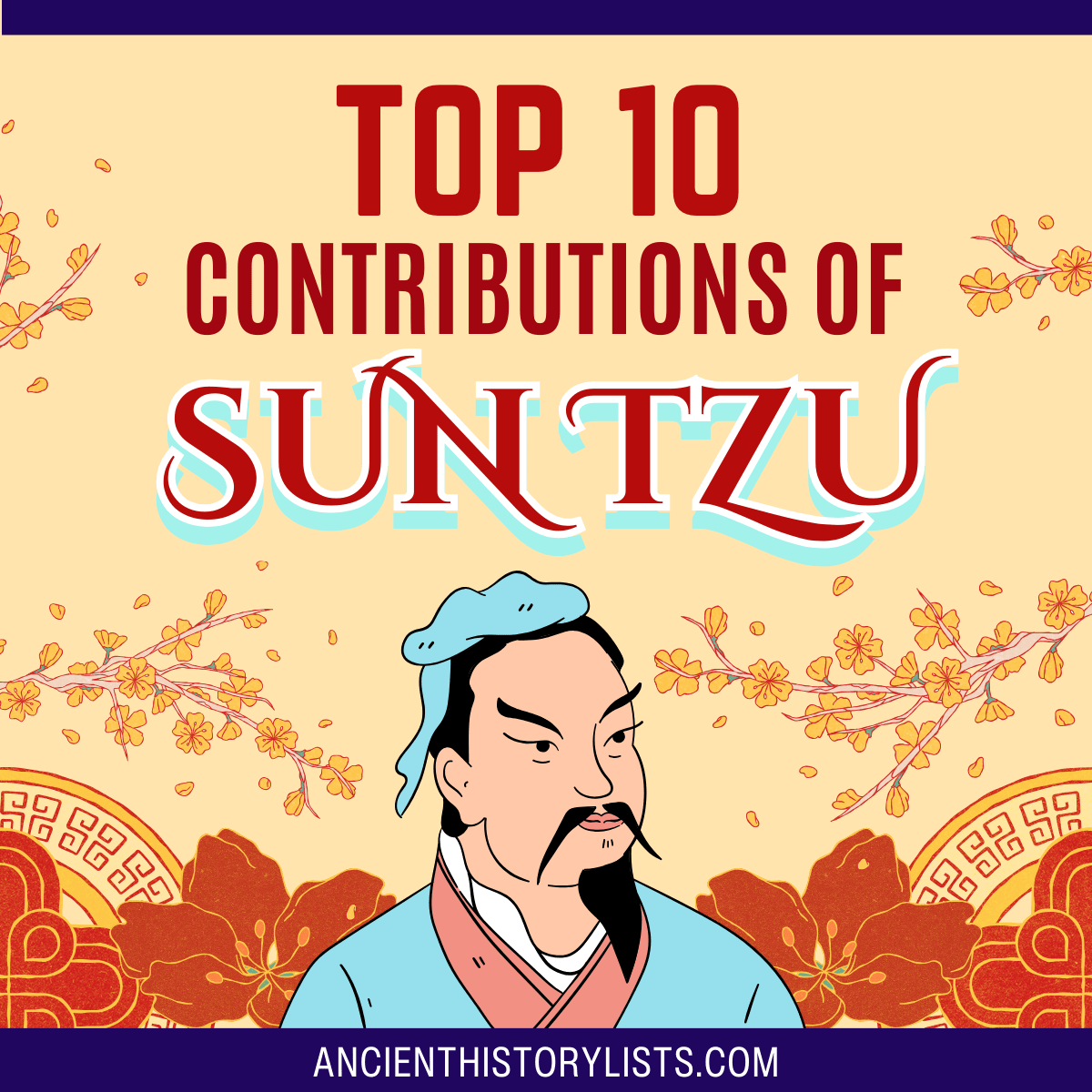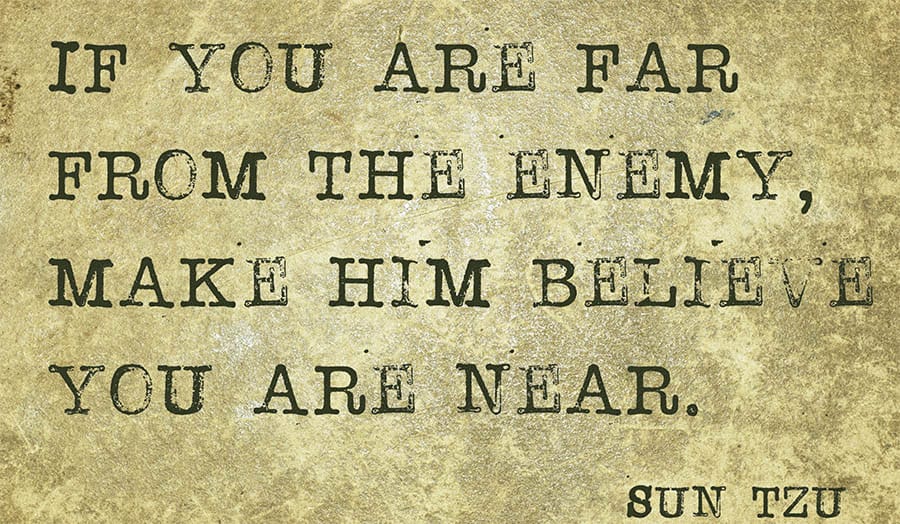When life gives you lemons, should you make lemonade? Interesting question. All through life, we face many situations which we wish we had a guide book for. And that’s where Sun Tzu comes into the picture. But who is he, you might ask?
Sun Tzu was a Chinese general, military strategist, author, and thinker who lived during the Eastern Zhou period of ancient China. Sun Tzu is generally credited as being the author of The Art of War, a compelling military treatise that has greatly influenced Western and East Asian military theory. His work covers subjects such as tactics, strategy, delay, the utilization of government agents, the creation and maintenance of alliances, the employment of double agents, and when to admit defeat. In short, it covers the very art of war itself.
The Art of War is acknowledged as a perfect work on methodology and has been consulted by commanders and scholars since it was first published and translated. Though the text refers to battle tactics in ancient China, they are still relevant today.

In this article, we will discuss the book’s top 10 teachings:
1. Do Not Rush into War
The stakes in war are high and for a country to win it should utilize all the military apparatus available to it. Sun Tzu repeatedly talks about the financial cost of war and the overwhelming burden of taking men from their civilian roles and using them as troops in the field.
War therefore should not be the primary means for a state to fight for its ideals since it is so costly. After all, a win in battle is useless if life afterwards is irreparable.
2. The Costs of War
In chapter 13, the Utilization of Spies, Sun Tzu says:
“Presently, when a multitude of 100,000 is raised and dispatched to an inaccessible battle, the costs borne by the general population together with payment from the treasury will add up to a thousand bits of gold day by day. Moreover, there will be constant tumult both at home and abroad, individuals will be depleted by the costs of transport, and the homestead work of 700,000 family units will be disturbed.”
This shows that while technology may have improved, war has not changed and can be fought and interpreted in the same way. War is costly, and its expense trickles down through all levels of society. This fact demonstrates Sun Tzu’s great astuteness. In The Art of War, a reader can detect his unmistakable technique for practically evaluating any given circumstance and suggesting a solution.
In his treatise, Sun Tzu encourages his readers to consider their strategic planning, to think about what they are doing, what they are facing, who this is going to help, and what the most straightforward strategy for accomplishing their objectives could be.
3. Cunning and Reconnaissance

Sun Tzu’s idea of affecting his adversary’s choices is essential to his fighting technique. “What distinguishes Sun Tzu from Western journalists on methodology is the accentuation of the mental components over the simply military,” said Henry Kissinger in On China.
This is discussed in the sections that detail strategies and activities: the direction of the military’s advance, the arrangement of bowmen, the accumulation of knowledge. Each is done in a way that hoodwinks the enemy and establishes mental superiority over them. This can also be applied in normal life. The ideas of reconnaissance and misleading the enemy are common throughout The Art of War.
4. Military Intelligence
“All fighting depends on misdirection.” – Sun Tzu
First, know the enemy and know their strategy. Then spread misleading information to confuse them. Sun Tzu devotes part of his book to surveillance and talks about five kinds of operators used to trick the enemy and gather precise data so as to outwit them.
This is called “foresight,” and involves gathering data about the enemy’s plans ahead of time, and spreading disinformation behind enemy lines – activities which are fundamentally the same today. Each operator was used for a different type of intelligence and would gather data in a different way.
5. The Importance of Ch’i
Sun Tzu is considered one of the first proponents of ch’i, a Taoist belief that features prominently in ancient Chinese history. It basically refers to your life force, and it is said that you shouldn’t waste your time and effort on useless tasks.
You should plan to use that time wisely so that everything can be accomplished smoothly. The application of ch’i can be seen behind all Sun Tzu’s explanations of duplicity, surveillance, and control over the enemy.
Sun Tzu explains how to accomplish this in his section on maneuvers: “Walk by a roundabout course and occupy the foe by tempting him with a lure. So doing, you may set out after he does and touch base before him.”
6. The Professionalization of the Military
In The Art of War, Sun Tzu talks about the importance of successful administration of the military. He explains that the troops will fight more enthusiastically if they have good material arrangements and clearness of direction: “In the event that a general gathers his troops but can’t utilize them; on the off chance that he cherishes them yet can’t authorize his directions; if the troops are untidy and he can’t control them, they might be compared to spoilt children and are useless.”
This observation and Sun Tzu’s hypothesis of order can be seen in a story by the historian Ssu-ma Ch’ien. He tells how Sun Tzu told the King of Wu that he could even prepare the lord’s mistresses for battle, showing that everyone is capable of rallying to your cause provided you prepare them properly.
This story illustrates Sun Tzu’s belief that anyone can be made into a good warrior as long as they have a leader who uses his mind to apply the science of fighting.
7. Look to Your Strengths
Sun Tzu’s celebrated proclamation that “each fight is won or lost before it is won” points to the fact that victory goes to the individuals who plan carefully. Avoid an enemy’s stronghold and attack their weak point. If you know someone means to defeat you using an advantage, don’t get lured by the bait. Focus on your strengths and their weaknesses.
This process might be compared to water. Just as water flows downhill, an army should rely on its natural strength and attack the enemy when he is powerless. Also, just as the path of water conforms to the landscape through which it flows, an army should adjust to the nature and circumstance of the enemy.
8. Be Willing to Adapt
“He who accomplishes triumph by adjusting his strategies to the circumstance of the adversary can be divine.” – Sun Tzu
Strategy matters the most. Never have a rigid strategy when dealing with a problem; be willing to bend and adjust. Today we can follow Sun Tzu’s ideas in all walks of life whether that is to do with government, leadership, or maintaining the delicate balance of power. The ideas put forward in The Art of War can still be applied in the Western world today.
9. Know Your Enemy and Know Yourself
One of the most important of Sun Tzu’s quote is:
“Know the enemy and know yourself,” so that “in a hundred fights you will never be in peril.”
This aphorism is as true today as it was then. Understanding your enemy, his tactics, and his culture is important if you are to overcome him. Despite our technological advances in the field of war, Sun Tzu’s ideas from the sixth century BC are just as valid now as they were in ancient China.
While his words are simple and apply to the art of war, they can be open to many interpretations and are applicable in all walks of life. Once you know your own strengths and weaknesses and those of the enemy, you can use this knowledge to gain an advantage without much effort.
We can see that Sun Tzu’s ideas have perhaps had a greater influence on Western culture than even realpolitik (the system of politics based on practical rather than ideological considerations) or the Greco-Roman legacy.
10. Subterfuge and Intelligence
The formation of the Central Intelligence Agency (CIA) was built on ideas first put forward by Sun Tzu in The Art of War. Similarly, whether you are a boss handling your employees or a preschool teacher unable to cope with an unruly class, Sun Tzu has words of wisdom for all.
Knowing more about the conditions of your employees or children will help you to understand them and ultimately take control of them. Sun Tzu covers all aspects of intelligence in his book: counterintelligence, mental fighting, subterfuge, security, deception.
Conclusion
The Art of War is a treasure whose wisdom can be applied to both military and daily life. When we say life is nothing short of a battle, we are reminded of excerpts from The Art of War. From inspiring intelligence organizations to company management, everything can find guidance in this ancient book.
Its basic and solid wisdom has made it a guide for present-day strategists. Sun Tzu’s work speaks of the same set of problems faced by modern strategists which modern technology and advances in warfare have done nothing to change.
However, the guidance laid out in this book is equally applicable to daily life and shows that it is possible to achieve your goal without paying a huge price.